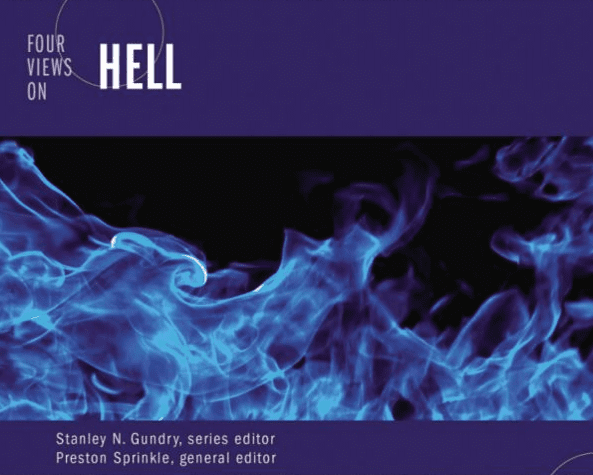 Protestant Purgatory, by John Frye
Protestant Purgatory, by John Frye
My best theological assessment for the purgatory view is, “Let’s not pussyfoot around about it.” Why? Let’s read what Jerry L. Walls, the author of the view in Four Views on Hell wrote. “…[W]here is the biblical support for this doctrine? The forthright answer to this question, one that is often conceded by the Roman Catholics as well, is that there is little explicit biblical support for the doctrine” (152). Burk writes in response, “This lack of attention to Scripture [for the purgatory view] is likely to persuade evangelicals who still take sola scriptura seriously” (175). Stackhouse responds, “The typical Protestant response to all this talk about purgatory is a simple one: Purgatory isn’t taught in the Bible” (180).
I was surprised to see Walls refer to 1 Corinthians 3:11-15 for biblical support of purgatory. As a first year seminary student, I wrote a theological analysis of this very text concluding that it was a warning text about teachers who were not faithfully building the church, the Spirit’s Temple, on the foundation that Paul laid—the gospel of Jesus Christ. The text has nothing to do with purgatory or with carnal Christians being “saved as though by fire.”
The question about whether purgatory should be viewed in relation to heaven or to hell was intriguing. This opened the discussion to whether purgatory is to be viewed in terms of satisfaction or sanctification. This was new to me. I was familiar with the Reformers’ rejection of the abuses of the Roman Catholic view of purgatory (and penance), but not with purgatory seen as “an ante-room to heaven” (146). Luther and Calvin rightly saw the Catholic abuses as an assault on the work of Christ. The sanctification aspect of purgatory was not on their radar screens.
What about the sanctification view (preparatory view) of purgatory? What I appreciated here was the needed stress on personal life holiness as a requirement to see the Lord. No one can deny that the holiness referred to in Hebrews 12:14 is personal character holiness. Without it, no one will see the Lord. This does not seem to be a high priority in the typical teaching of many evangelical communities of faith. We’re smothered in praise songs, taught about soul-wellness, urged to be successful as “little Christs,” and to do justice works like digging wells in Africa. We all assume we’re fit to enter heaven sanctified or not.
I don’t think, however, that getting fit for heaven by extending the sanctification process into a post-mortem, painful existence “without a body to help us” is the answer, Venerable Bede, Dorothy Sayers, C. S. Lewis, and P. T. Forsyth notwithstanding (146-148, 169). The changed-in-an-instant texts—1 Corinthians 15:52; 1 John 3:2—just may include the application of the redemptive work of Christ to the sanctification process. Even living believers will be caught up to be “with the Lord forever” at the Parousia (1 Thessalonians 4:17). I didn’t see Paul squeeze in purgatory.















